Jump to:
It can be jarring and confusing when you notice your hair products include alcohol as a main ingredient. You may think alcohol doesn’t belong in your hair products, but they serve a purpose.
While alcohol can be bad for your hair, it can also be good! We’ll show you why this is, when to avoid it, and the potentially negative side effects it causes in your hair. Read on to learn all you need to know.
What Is Alcohol in Hair Products?
Alcohol in hair products can emulsify the other ingredients, thicken and soften the substance, condition your hair, help your hair absorb the product, or rid your hair of oils.
You may pride yourself on buying top-quality hair products until you notice they all contain alcohol. Many people grow concerned when they see this listed as one of the main ingredients. But the presence of alcohol in your hair products is normal and not necessarily a bad thing.
Alcohol can help your hair better absorb the good ingredients or make the product more comfortable to use. Knowing what alcohol does for your hair can make you feel better about seeing this ingredient on your bottle!
In this article, you will learn about the following:
- The Types of Alcohol in Hair Products
- Hair Products With Alcohol
- Other Products That Contain Alcohol
Types of Alcohol in Hair Products
When you read the ingredients on the back of your hair product, it won’t simply say “alcohol.” Instead, you’ll see specific types of alcohol. Some alcohols are “good” for your hair, while others can be damaging and unproductive.
This section will discuss the differences between the various alcohol in hair products and how they affect your hair.
Ethanol
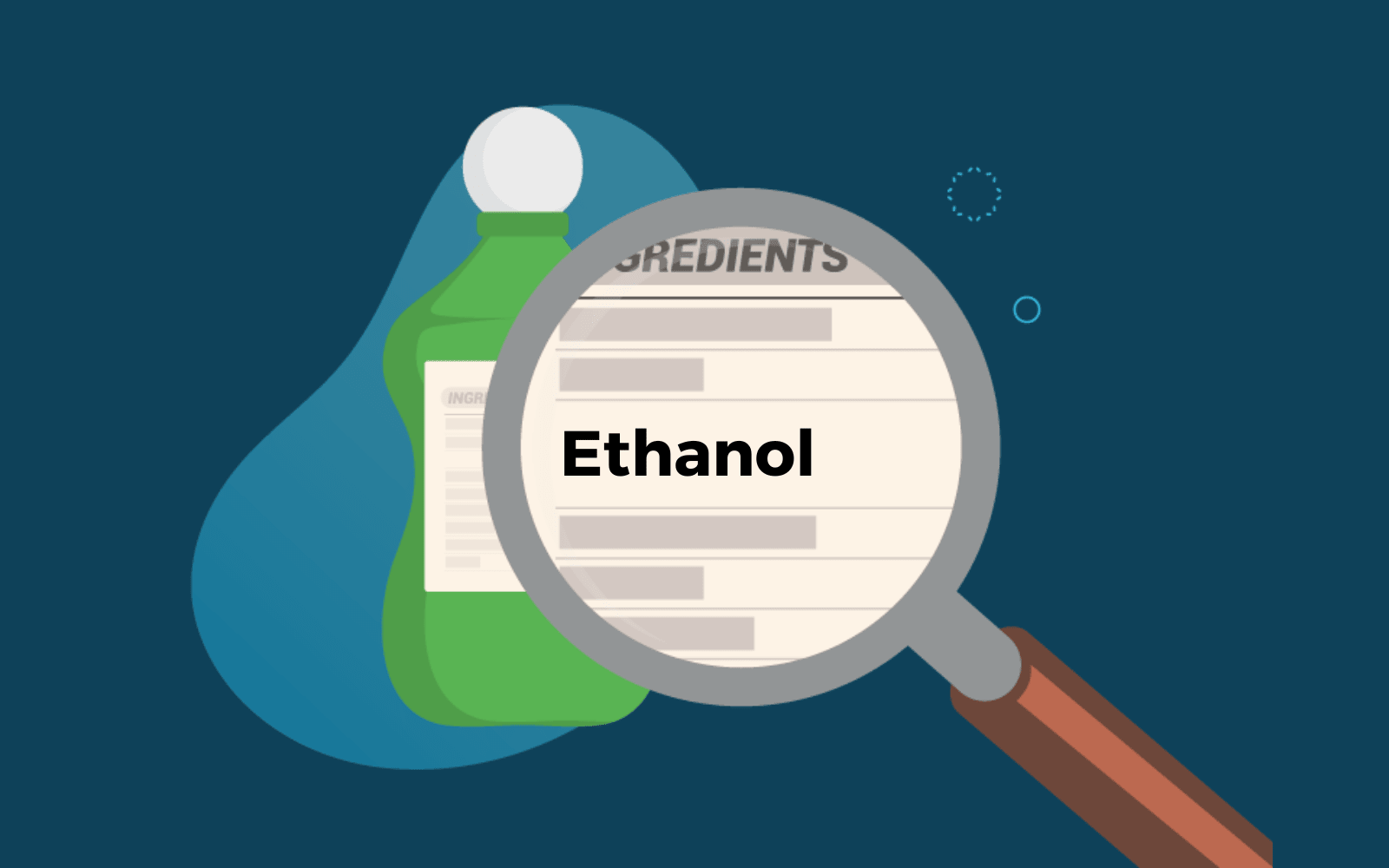
Ethanol, also listed as alcohol denatured, is a solvent. This type of alcohol can break down and remove excess oil on your hair, whether natural oil like sebum or synthetic oils from other products.
These solvent alcohols help the hair product dry quickly, so the user doesn’t have damp hair for long. Ethanol evaporates easily. Ethanol alcohols won’t sit on the hair or leave behind residue. Ethanol can dry out your hair if applied in high quantities.
Isopropyl
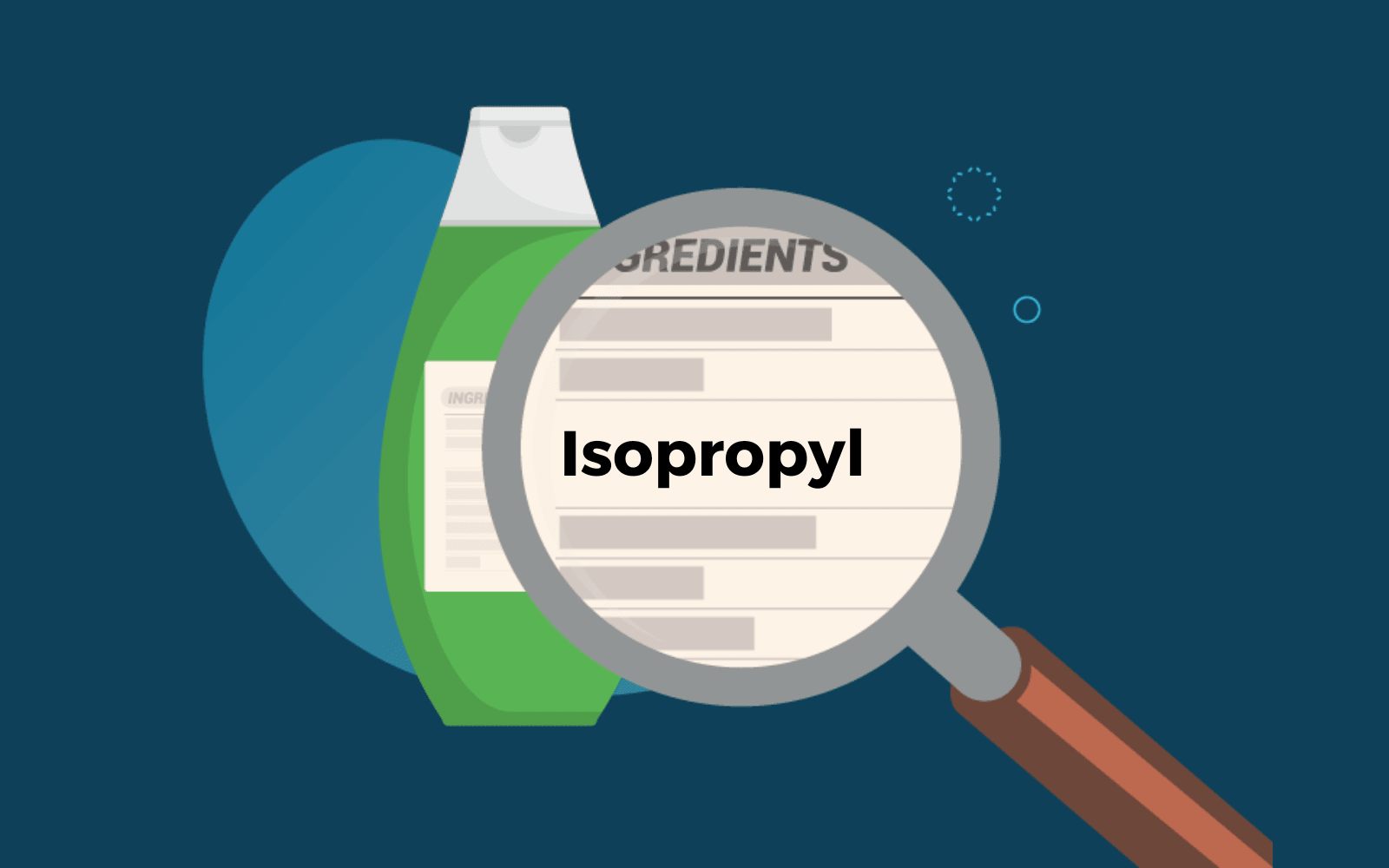
You may have a bottle of Isopropyl under your kitchen sink for cleaning stinky shoes or in your bathroom for cleaning fresh piercings. But you can also find Isopropyl alcohol in certain hair products.
Isopropyl alcohol can help products absorb into the hair strands better. This alcohol helps the hair shaft and strands soak up the hair product. However, Isopropyl can weaken your hair, making the hair follicles and shaft more vulnerable.
Benzyl
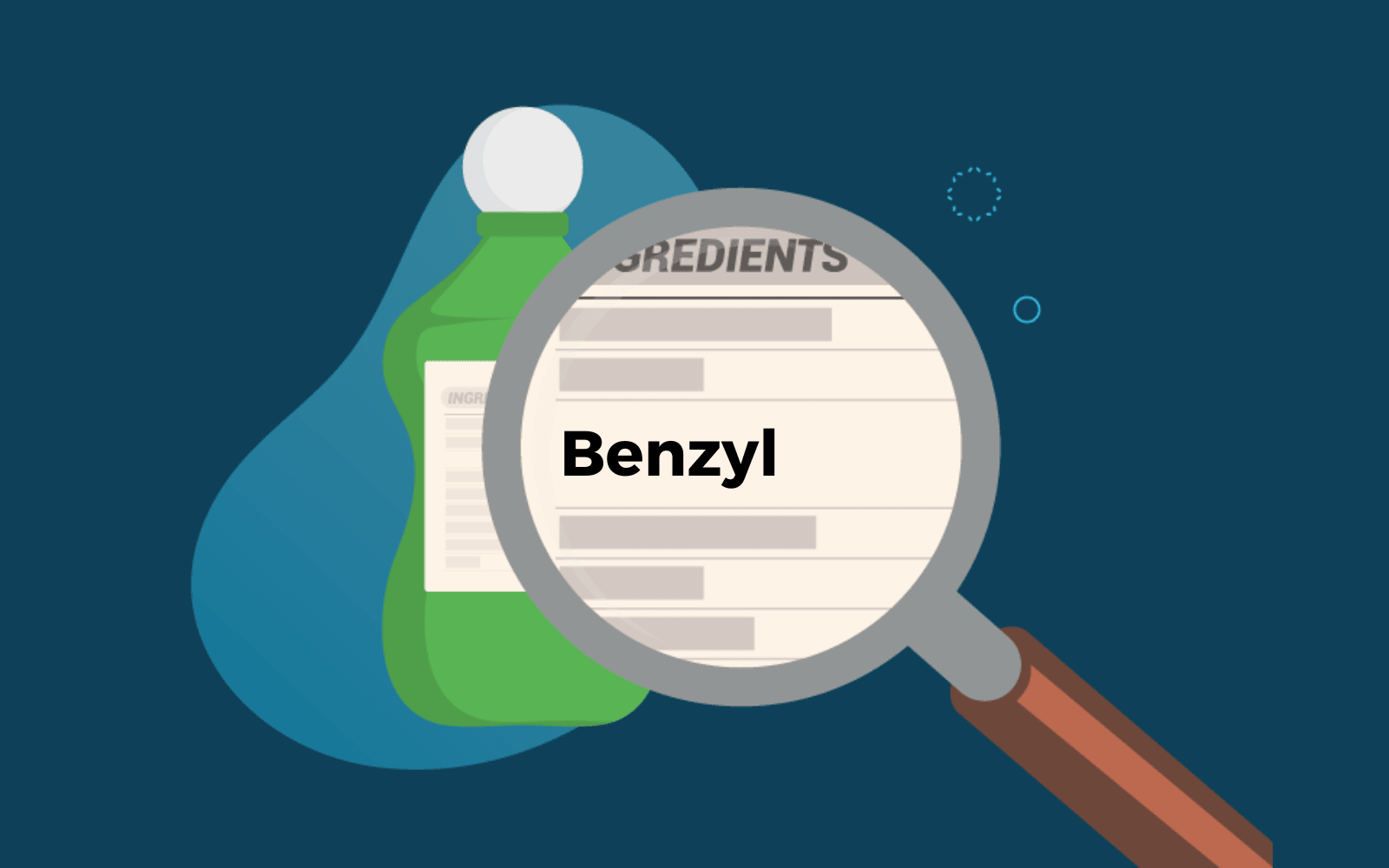
Benzyl alcohol is used in hair products to enhance the fragrance or act as a preservative. Benzyl in hair products is minimal, so it doesn’t significantly impact hair. As mentioned, it’s mostly used to create a pleasant and prominent flavor in your hair products.
Fresh and pure benzyl alcohol has a sweet, floral scent. Companies like to use this instead of other artificial fragrances because it seems natural for hair.
Cetearyl and Cetyl
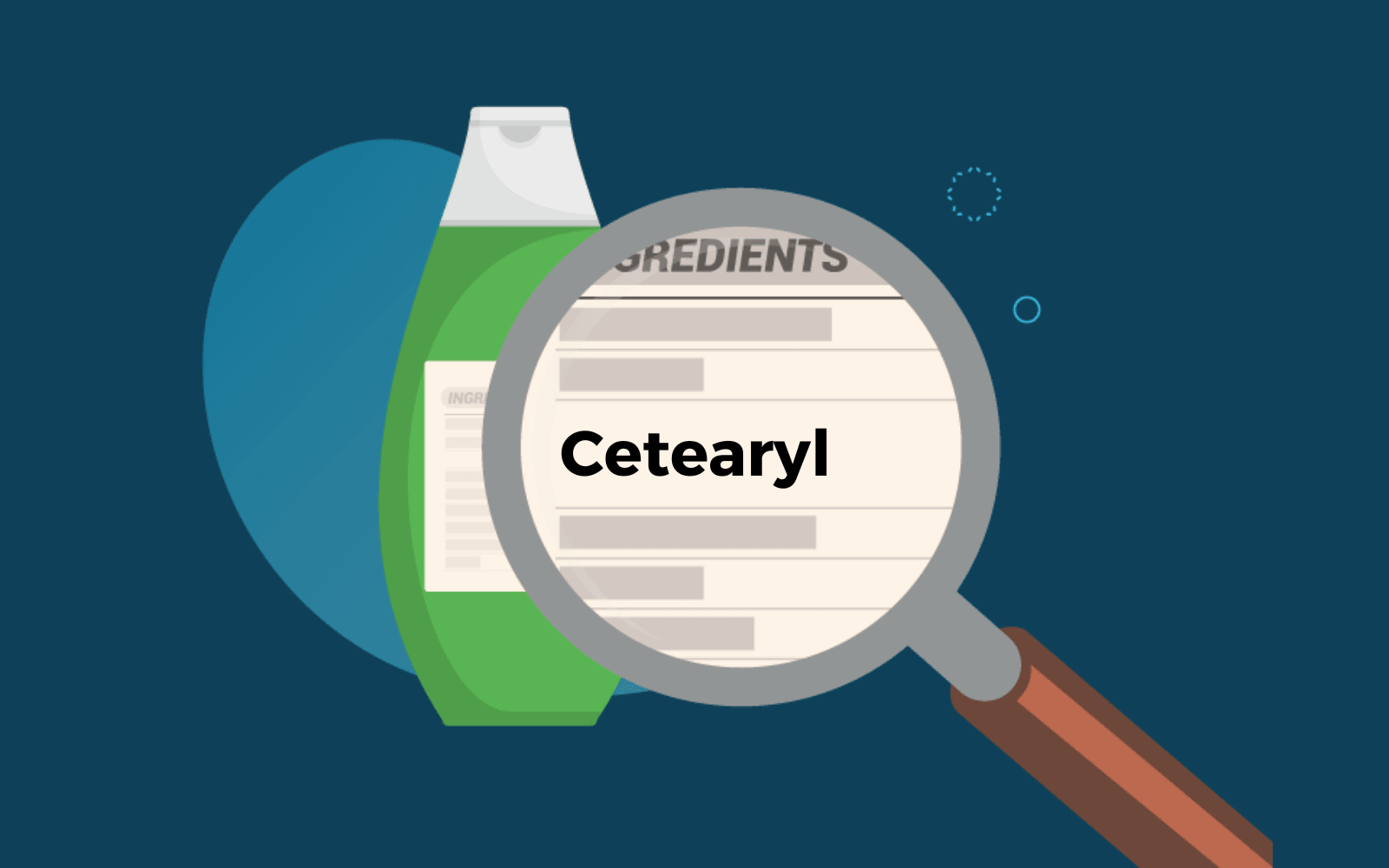
Cetearyl and Cetyl alcohols are some of the “good” alcohols in hair products. Both are a type of waxy emollient that can help condition and soften your hair. They are fatty alcohols that can supplement your hair with needed nutrients and oils.
These waxy alcohols also contribute to the soft, creamy texture. It prevents the oils and liquids in hair products from separating, acting as an emulsifier. It can also thicken a product or help it foam up properly.
Propanol and Propyl
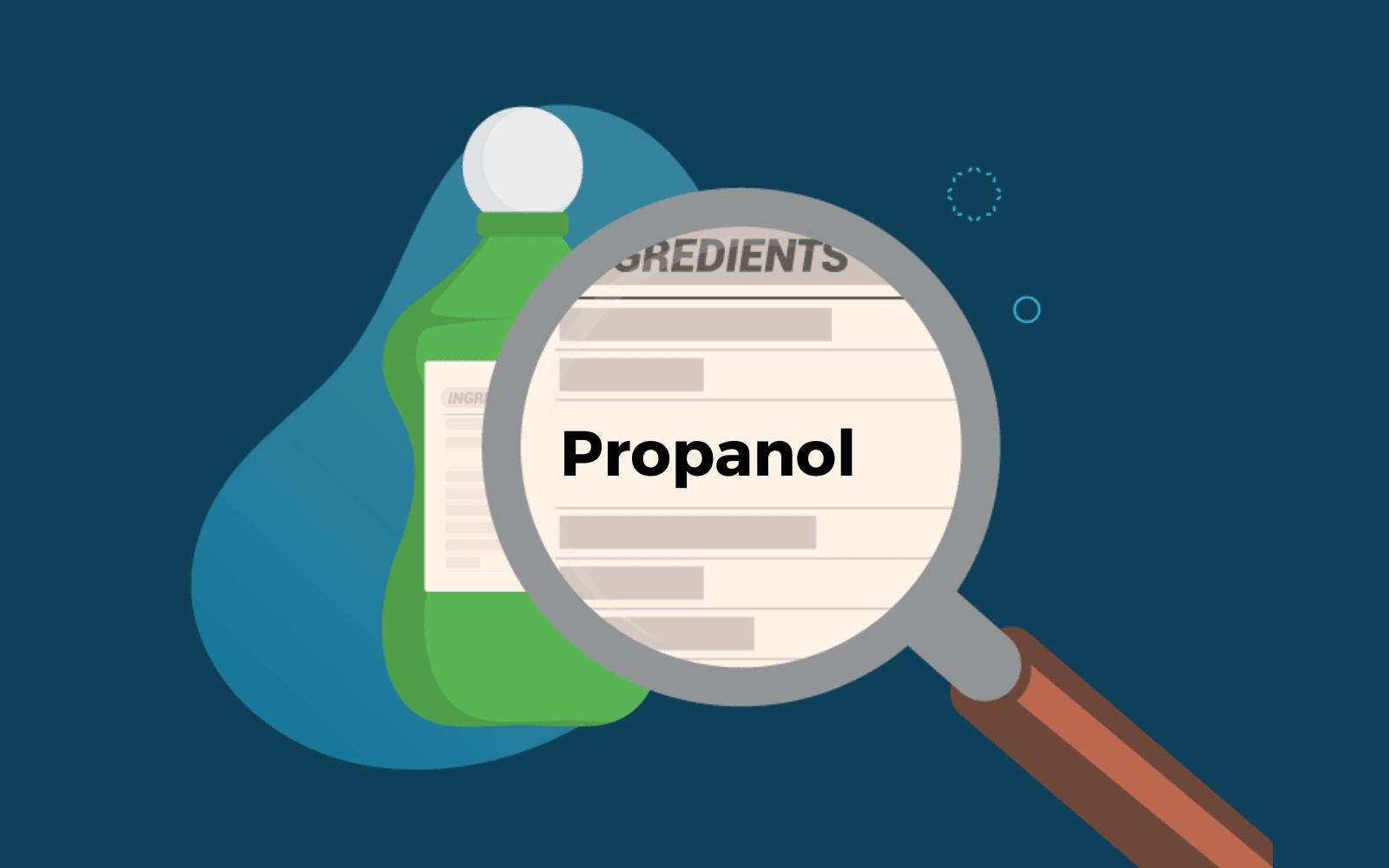
Propanol and Propyl alcohol are isomeric alcohols used as solvents in hair or skin products. It works similarly to ethanol, so it can harm your hair by weakening the strands and making the follicle vulnerable. These two types of alcohol are very similar to ethanol and often used interchangeably in certain products.
Stearyl
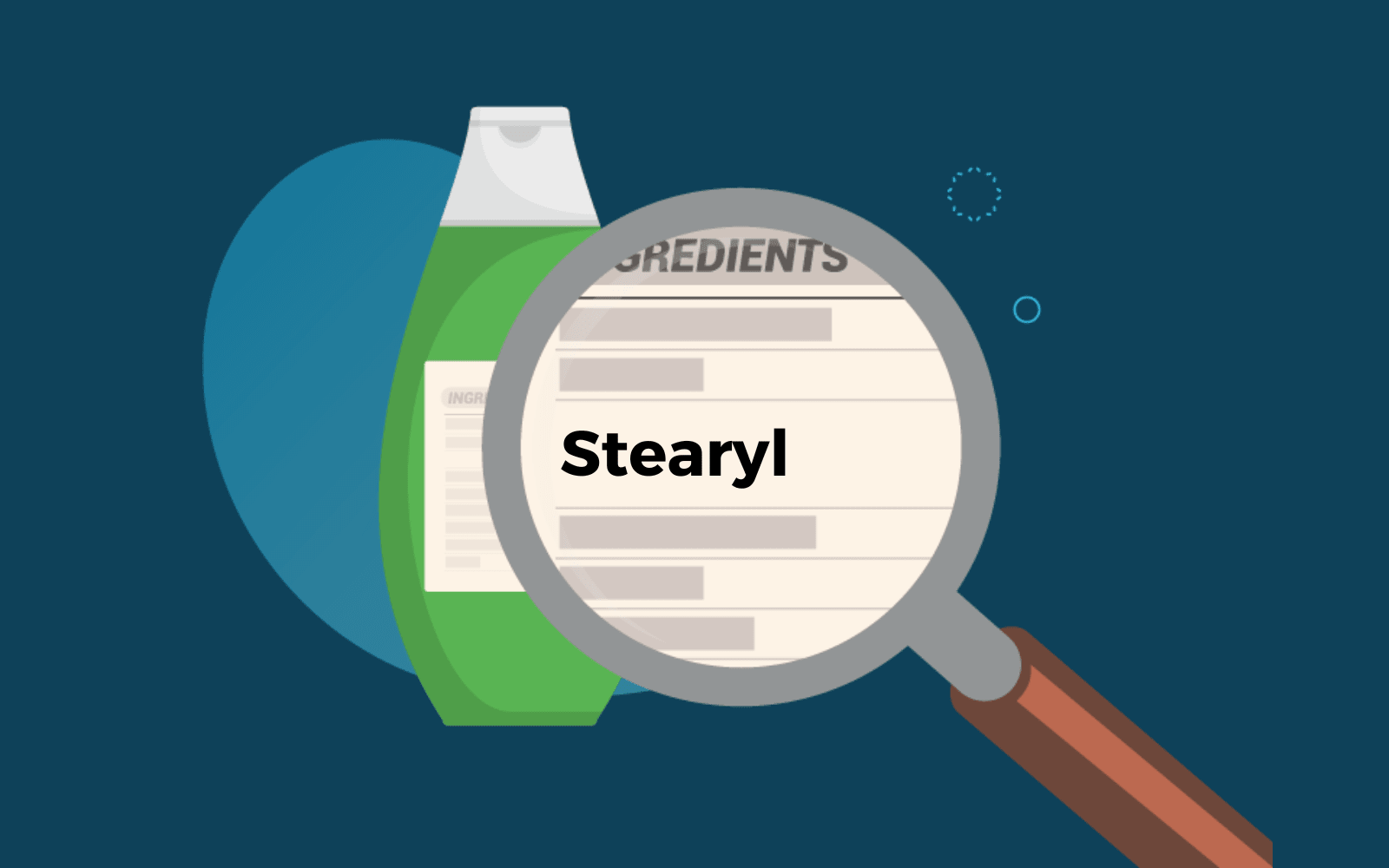
Stearyl alcohol is another type of fatty alcohol that works to make products soft and smooth. It creates a more slippery texture than Cetearyl, emphasizing the waxy properties that make moisturizers soft and silky.
Stearyl alcohol lubricates surfaces, like your hair strands. It also emulsifies the product, similarly to Cetearyl and Cetyl alcohols. Stearyl is a frequent replacement for Cetearyl and Cetyl.
Lauryl
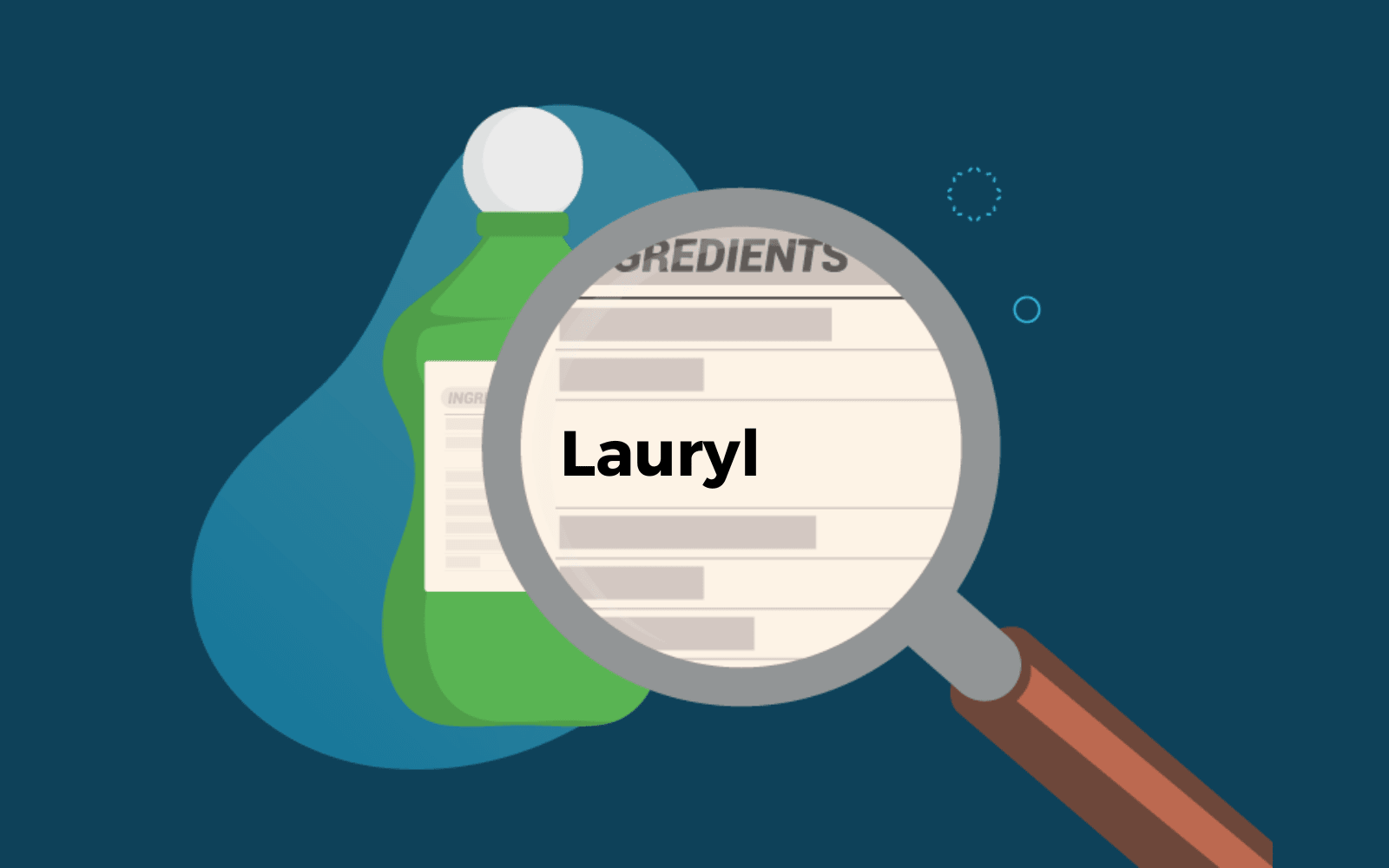
Lauryl alcohol, or Dodecanol alcohol, is derived from palm or coconut oil. It’s another fatty alcohol that thickens and softens hair products to make them more appealing to consumers.
It acts as a surfactant, reducing the surface tension of a liquid and helping the hair product coat your hair better. Your hair can also benefit from the antimicrobial effects to keep your hair clean and healthy.
Read Next: What Is SLS in Shampoo and Hair Products?
Hair Products With Alcohol
Now that you know a little about the different alcohols in hair products let’s look at which alcohols are in which products. The hair products discussed below use specific alcohol.
Shampoo
Everyone uses shampoo to keep their hair clean and free of excessive oil. Some of the most common alcohols you’ll find in shampoo are:
- Cetyl alcohol
- Lauryl alcohol
- Cetearyl alcohol
- Stearyl alcohol
- Ethanol alcohol
The Cetyl and the Cetearyl help keep the oils and liquids in the shampoo combined to create the thick, jelly texture we’re all accustomed to. If shampoos didn’t have these emulsifying ingredients, you’d have to shake your shampoo bottle all the time, and the shampoo will be more watery and loose.
A combination of Ethanol, Stearyl, and Lauryl also contributes to the slippery, waxy texture you know. The oil-stripping properties of the Ethanol help remove sebum and grease from your hair, leaving it clean and soft.
Without most of these alcohols, your shampoo would be watery and less effective. You may also have difficulty getting the shampoo out of your hair without these waxy emollients.
Conditioners
The most common alcohols present in your conditioner are:
- Cetyl alcohol
- Stearyl alcohol
- Benzyl alcohol
- Isopropyl alcohol
Conditioners typically contain less alcohol than shampoo, as it doesn’t need to strip your hair. But the fatty and emulsifying alcohols make your conditioner super soft, creamy, and thick.
It also helps your conditioner cover your hair and seep into the follicles or shaft to ensure complete hydration and moisturization. Benzyl alcohol gives your conditioner a sweet fragrance without adding other synthetic fragrance ingredients.
The presence of Cetyl and Stearyl alcohol are helpful ingredients in hair conditioner, as they make your hair silky and voluminous.
But Isopropyl is not ideal, as this alcohol can dry your hair out. In addition, Isopropyl can strip oils and dry out your hair, which is the opposite aim of conditioning.
Hair Removal Creams
Hair removal creams, such as Nair and Veet, typically contain one or more of the following types of alcohol:
- Cetearyl alcohol
- Cetyl alcohol
- Benzyl alcohol
The Cetearyl and Cetyl alcohol keep the oils and liquids in the hair removal cream together. If they separate, the cream can’t efficiently remove hair.
It helps certain ingredients necessary for hair removal dissolve into the oils that make it easy to apply. These alcohols also help the cream cover more surface area and seep into the hair to chemically remove it.
Without these alcohols, the chemicals that remove the hair may not penetrate the hair shaft. Again, Benzyl alcohol is an ingredient that gives the cream a sweet, herbal smell that doesn’t seem artificial.
Read Next: The 7 Best Hair Removal Creams to Buy in 2025
Hair Dye
The following alcohols are common in hair dyes:
- Isopropyl alcohol
- Benzyl alcohol
- Ethanol alcohol
- Cetearyl alcohol
- Cetyl alcohol
- Lauryl alcohol
- Stearyl alcohol
As you can see, hair dye can have any type of alcohol or a combination of a few. Hair dye is one of the harsher hair products, and this is due to alcohol and other potent chemicals. However, without alcohol, most hair dyes would not work.
The fatty alcohols help condition and hydrate the hair while being dyed, so it doesn’t dry out too much from the evaporating alcohols. But the evaporating alcohols help the hair shaft be more absorbent, allowing the dye to soak in and change the user’s hair color.
Other Hair Products With Alcohol
The products discussed above are the most-used items for hair that contain alcohol. Most people use shampoo and conditioner, so you’ve likely used a product with alcohol in it. Other hair products that may contain alcohol include:
- Hair mousse
- Anti-frizz hair cream
- Hair mask
- Leave-in conditioners
- Dry shampoo
- Hair gel
- Hair clay
- Hair spray
Other Products That Contain Alcohol
Many hair products contain alcohol, but so do other products used for your skin. Read the ingredients on your other products to see if they have alcohol. You’ll likely find Benzyl, Cetyl, or Cetearyl alcohol in the following products:
- Skin lotions
- Moisturizers
- Skin creams
- Sunscreen
- Mascara
Frequently Asked Questions
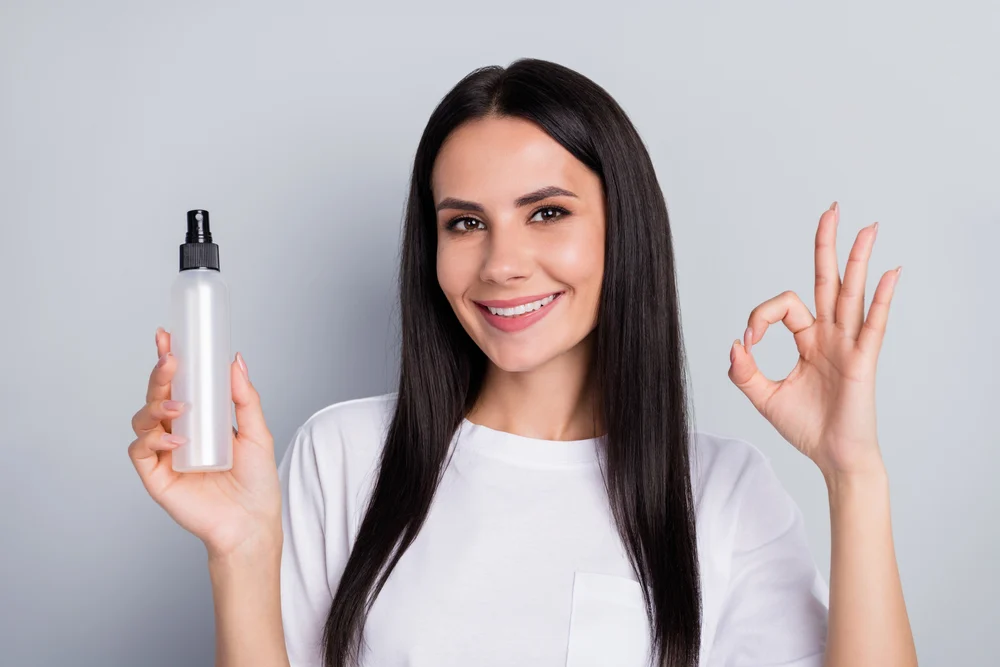
Roman Samborskyi/Shutterstock
Below are a few related questions people commonly wonder about when researching alcohol in hair products.
Are there alcohol-free hair products?
Yes! You can easily find your hair products in alcohol-free versions! Some organic companies skip the alcohol, and more expensive brands use higher-quality ingredients to thicken and emulsify.
What hair product brands don’t use alcohol?
Most of the big-name hair care brands use alcohol in their products. But if you want to try alcohol-free hair care products, you can buy from SEEN, The Earthling Co., Not Your Mother’s Hair, Living Proof, Lolavie, or Innersense.
So, Why Is Alcohol in Hair Products?
While some alcohol can dry out your hair if used in excess, other alcohol helps to condition and clean your hair. Generally, noticing alcohol as an ingredient in your hair care products is nothing to be concerned about.
But you can always switch to alcohol-free products if you feel they are drying out your hair. At worst, the products won’t be as effective, but you may experience less side effects. Give it a shot and report your finding back to us. We’d love to see your results!
